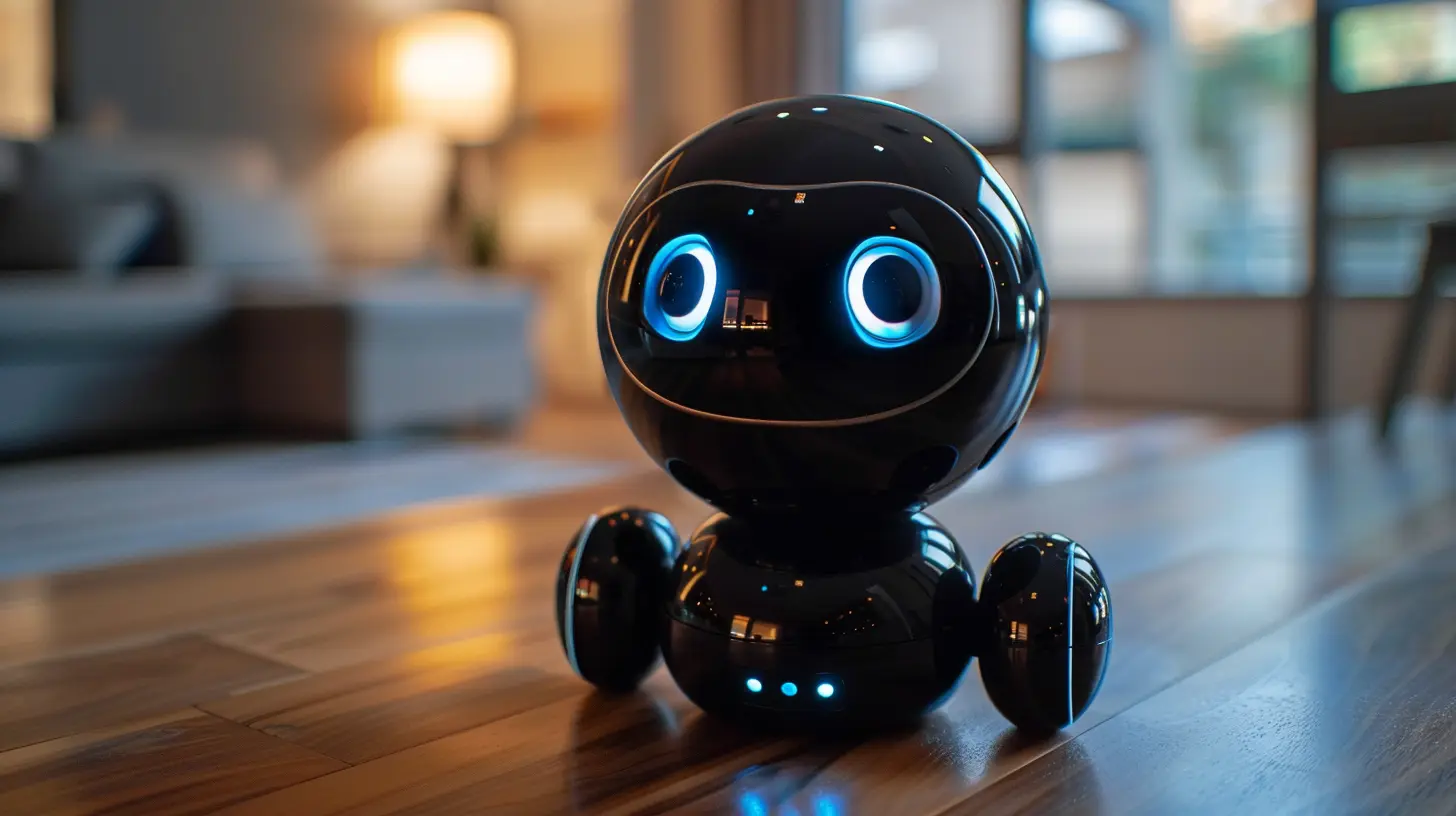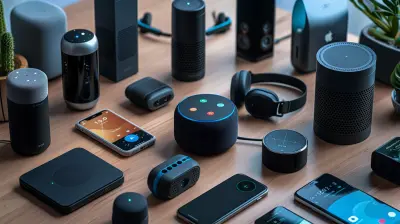The Pros and Cons of Using a Digital Assistant in Your Daily Life
9 November 2025
Let’s be honest — life moves fast. Between work deadlines, grocery lists, unanswered messages, and trying to squeeze in a little “me-time,” who wouldn’t want a helping hand? That’s where digital assistants come in. Siri, Alexa, Google Assistant, and even Cortana (yes, she's still kicking around) are ready to lend us that hand, or voice, 24/7.
But as much as they promise to make life easier, not everything is sunshine and perfectly scheduled calendars. In fact, there’s a whole mix of benefits and trade-offs when it comes to inviting a digital helper into your daily routine.
So, let’s break it down — the good, the bad, and the slightly creepy — of living life with a digital assistant by your side.
What Exactly Is a Digital Assistant?
Before we jump into the pros and cons, let’s make sure we’re all on the same page.A digital assistant (sometimes called a virtual assistant) is a piece of software that uses artificial intelligence (AI) and natural language processing (NLP) to understand your voice commands and respond with helpful actions.
Whether it’s telling you the weather, controlling your smart home, or setting a reminder to feed the dog, these AI-powered helpers are integrated into smartphones, smart speakers, tablets, TVs, cars, and more.
The Pros of Using a Digital Assistant
Let’s start with the good stuff. Here’s how digital assistants can genuinely make our lives easier, more efficient, and sometimes just more fun.1. Time-Saving Convenience
Raise your hand if you’ve ever found yourself midway through cooking, hands covered in flour, and desperately trying to remember the next step in a recipe. With a digital assistant, you can just say, “Hey Google, what’s the next step?” No need to touch your phone or laptop.Digital assistants can perform a wide range of tasks:
- Setting timers and alarms
- Creating shopping or to-do lists
- Sending texts or making calls
- Giving directions and traffic updates
- Reading your calendar or adding events
It’s like having a personal secretary who never takes a coffee break.
2. Hands-Free Functionality
This is a game-changer, especially when multitasking. Whether you’re driving, working out, or doing chores, you can still get things done without lifting a finger.“Hey Siri, send a message to mom.” Boom — done without even breaking stride.
3. Smart Home Integration
Got smart lights, a thermostat, or a video doorbell? Digital assistants bring all of it together. You can dim the lights, adjust the temperature, or check who’s at the door — just by speaking.This creates a seamless, cozy environment that feels futuristic and kind of magical. “Alexa, movie night.” And just like that, the lights dim, the TV turns on, and popcorn (well, you still have to make that yourself) awaits.
4. Accessibility Benefits
For people with disabilities or mobility limitations, digital assistants can be a real lifeline. They allow users to operate their devices, get information, and communicate without needing to physically interact with anything. That’s powerful. It’s more than convenience — it’s about inclusion and empowerment.5. Personalization Over Time
Digital assistants learn from your behavior. If you're always setting a morning alarm for 6:30 AM and asking about the weather right after, they start to anticipate your needs.Over time, they tailor suggestions, reminders, and even jokes (some better than others) to your preferences. It’s like they’re getting to know you — and that’s both cool and a little weird, but more on that later.
The Cons of Using a Digital Assistant
Okay, now for the not-so-fun part. As helpful as digital assistants are, they aren’t perfect. In fact, there are some major concerns you might want to think through.1. Privacy Concerns
This is the elephant in your living room… or bedroom… or wherever your smart speaker sits. Digital assistants are always listening, waiting to hear their wake word. Many people feel uncomfortable knowing that these devices might be recording or storing snippets of their conversations.Even though companies claim they only record short clips when activated, stories have surfaced of accidental activations or recordings being stored longer than expected.
So, the question is: Are you okay letting a piece of tech have that kind of access to your life?
2. Data Security Risks
Alongside privacy comes data security. Digital assistants collect a ton of information — your voice, location, contacts, internet activity, and more.If this data gets into the wrong hands during a cyberattack or data breach, it could be a big mess. Imagine someone accessing your smart home through your assistant or hearing your private conversations. Yeah… not great.
3. They’re Not Always Accurate
Ever tried to ask your assistant to call someone… and it called your ex instead of your mom? Yeah, that’s the kind of horror story no one wants.Digital assistants can misunderstand your voice, misinterpret commands, or simply not know how to help. And when you're in a rush or dealing with something important, that's incredibly frustrating.
4. Over-Reliance and Laziness
Let’s be real. It’s easy to get addicted to convenience. Suddenly, you're asking Alexa for the time instead of looking at the wall clock, or using Siri to calculate 2+2.There’s a fine line between using digital assistants to boost productivity and letting them dull your basic life skills. Some argue it's making us mentally lazy.
5. Limited Personalization in Multilingual or Non-Western Settings
If English isn’t your first language or you speak with an accent, digital assistants may struggle to understand you. And in many non-Western countries or less-resourced languages, the functionality can be painfully limited.This creates a digital divide where only parts of the population get the full benefits. That’s a bummer, and it’s something tech companies need to address.
Who Should Use a Digital Assistant?
Now that we’ve looked at the ups and downs, the big question is: should you use a digital assistant?Here’s something to consider — these tools are best suited for individuals who appreciate technology, want to save time, and don’t mind exchanging a bit of privacy for convenience.
They’re ideal for:
- Busy professionals juggling a million tasks
- Parents who need an extra hand
- Seniors who benefit from voice-controlled help
- People with disabilities looking for greater independence
- Tech-savvy folks who just love gadgets
But if you’re someone who’s deeply concerned about privacy, or you just don’t trust machines, you might want to keep it old school.
Tips for Using Digital Assistants Safely
If you're going to bring a digital assistant into your life, there are smart ways to do it.Here are some do’s and don’ts:
✅ Do:
- Review and regularly delete your voice history- Mute the microphone when not in use
- Use strong Wi-Fi passwords
- Customize privacy settings (you’d be surprised how many options are buried in the app)
- Stay updated on how your assistant uses and stores data
❌ Don’t:
- Use digital assistants for sensitive tasks (like banking or sharing medical info)- Install apps or skills that you don’t trust or recognize
- Assume your assistant is 100% accurate — always double-check
The Emotional Side of Using Digital Assistants
Here’s something we don’t talk about enough: the emotional impact.Digital assistants aren’t people, but they mimic human interactions. You say “thank you,” they respond politely. Some people even find themselves saying “please” or asking how their assistant is doing. It’s a little surreal, right?
This kind of relationship with technology can be both comforting and strange. On one hand, it brings a sense of companionship. On the other, it blurs the lines between human connection and machine interaction.
It’s worth asking ourselves: Are we replacing real conversations with artificial ones? What does that mean for our mental and emotional well-being?
Final Thoughts: Balancing the Digital with the Human
Like any tool, a digital assistant is only as good as how you use it. It can be a lifesaver in a hectic day or an intrusive presence when you just want peace and privacy. The trick is to find that sweet spot — using it to make your life easier without letting it take over completely.At the end of the day, technology should work for us, not the other way around.
So, use your digital assistant when it helps, but don’t forget to unplug, look up, and enjoy the human moments too.
all images in this post were generated using AI tools
Category:
Digital AssistantsAuthor:

Jerry Graham
Discussion
rate this article
1 comments
Runehart Schultz
Digital assistants: your helpful sidekick or an intrusive eavesdropper? They streamline tasks and enhance productivity, but at what cost to privacy? Balancing convenience with security is key. Embrace the tech, but remember: the smartest assistant might just be your own judgment. Choose wisely!
November 20, 2025 at 3:28 AM

Jerry Graham
Thank you for your insightful comment! Striking the right balance between convenience and privacy is crucial. While digital assistants can significantly enhance productivity, it's essential to remain vigilant about data security and make informed choices. Your judgment is indeed your best ally!


